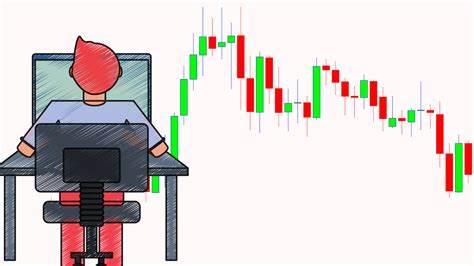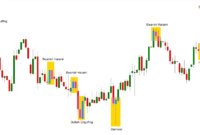Forex trading for beginners can seem daunting, but with the right information and resources, anyone can learn the basics and start trading successfully. The foreign exchange (Forex or FX) market is the largest financial market in the world, with daily trading volumes exceeding $6 trillion. This article will guide you through the fundamentals of Forex trading, key concepts, strategies, and tips to help you navigate this exciting market.
What is Forex Trading?
Understanding Forex
Forex trading involves buying and selling currencies in pairs, such as the Euro and the US Dollar (EUR/USD). Each currency pair has a bid price (the price at which you can sell) and an ask price (the price at which you can buy). The goal of Forex trading is to profit from fluctuations in currency values.
How Forex Trading Works
- Currency Pairs: In Forex, currencies are traded in pairs. The first currency is the base currency, and the second is the quote currency. For example, in the EUR/USD pair, EUR is the base currency, and USD is the quote currency.
- Exchange Rate: The exchange rate indicates how much of the quote currency is needed to purchase one unit of the base currency. For instance, if the EUR/USD exchange rate is 1.20, it means 1 Euro can be exchanged for 1.20 US Dollars.
- Leverage: Forex trading often involves leverage, which allows traders to control larger positions with a smaller amount of capital. While leverage can amplify profits, it also increases the risk of significant losses.
Getting Started with Forex Trading
Choose a Reliable Broker
Selecting the right Forex broker is critical for your trading success. Here are some factors to consider:
- Regulation: Ensure the broker is regulated by a reputable authority (e.g., the Financial Conduct Authority in the UK, or the Commodity Futures Trading Commission in the US).
- Trading Platforms: Look for a broker that offers a user-friendly trading platform with advanced tools and features.
- Fees and Spreads: Compare the fees, spreads, and commissions that different brokers charge. Lower fees can significantly affect your overall profitability.
Open a Trading Account
Once you have chosen a broker, you will need to open a trading account. Most brokers offer different types of accounts, including:
- Demo Account: Ideal for beginners, a demo account allows you to practice trading with virtual money, helping you understand the trading platform and develop your strategies without risking real funds.
- Live Account: Once you feel confident, you can open a live account and start trading with real money.
Learn Basic Terminology
Familiarize yourself with key Forex terminology to enhance your understanding:
- Pip: The smallest price movement in a currency pair, typically the fourth decimal place (0.0001).
- Lot: A standard unit of measure in Forex trading, representing a specific amount of currency. A standard lot is 100,000 units, while a mini lot is 10,000 units.
- Margin: The amount of money required to open a leveraged position, expressed as a percentage of the total trade size.
Strategies for Forex Trading
Fundamental Analysis
Fundamental analysis involves examining economic indicators, news events, and political developments to predict currency movements. Key indicators to monitor include:
- Interest Rates: Changes in interest rates by central banks can impact currency values significantly.
- Economic Reports: Reports such as GDP growth, employment data, and inflation rates can influence market sentiment and currency strength.
- Geopolitical Events: Political instability or major events (like elections) can lead to increased volatility in the Forex market.
Technical Analysis
Technical analysis focuses on historical price movements and patterns to forecast future price actions. Key tools include:
- Charts: Use line charts, bar charts, or candlestick charts to visualize price movements.
- Indicators: Common indicators like Moving Averages, Relative Strength Index (RSI), and Bollinger Bands help traders identify trends and potential entry and exit points.
- Support and Resistance Levels: Identify price levels where currencies have historically struggled to rise above (resistance) or fall below (support).
Trading Plans and Risk Management
Developing a solid trading plan is crucial for long-term success. Your trading plan should include:
- Trading Goals: Define your objectives (e.g., monthly profit targets) and timeframes.
- Risk Management: Establish how much capital you are willing to risk per trade. A common guideline is to risk no more than 1-2% of your trading capital on a single trade.
- Entry and Exit Strategies: Determine criteria for entering and exiting trades based on your analysis.
Tips for Success in Forex Trading
Start Small
As a beginner, it’s wise to start with a small trading account and gradually increase your exposure as you gain experience and confidence. This approach allows you to learn the ropes without risking significant capital.
Stay Informed
The Forex market is influenced by a wide range of factors. Stay updated on global economic news, central bank announcements, and geopolitical events. Websites like Forex Factory provide economic calendars and news updates that can help you stay informed.
Keep Emotions in Check
Emotional trading can lead to poor decision-making. Stick to your trading plan and avoid chasing losses. Keeping a trading journal can help you reflect on your trades and improve your decision-making process.
Practice Patience
Forex trading is not a get-rich-quick scheme. It requires patience, discipline, and a willingness to learn from mistakes. Focus on consistent growth rather than immediate profits.
Common Mistakes to Avoid
Overleveraging
Using excessive leverage can be tempting, but it significantly increases the risk of loss. Always use leverage wisely and only when you fully understand the risks involved.
Neglecting Education
Many beginners dive into trading without adequate education. Invest time in learning about Forex trading through courses, webinars, and books to build a solid foundation.
Ignoring Economic Events
Neglecting to monitor economic indicators and news can lead to unexpected losses. Stay informed about scheduled economic releases and be prepared for potential market volatility.
Conclusion
Forex trading for beginners can be a rewarding venture if approached with the right knowledge and strategies. By understanding the basics, choosing a reliable broker, and developing a solid trading plan, you can navigate the complexities of the Forex market effectively.




